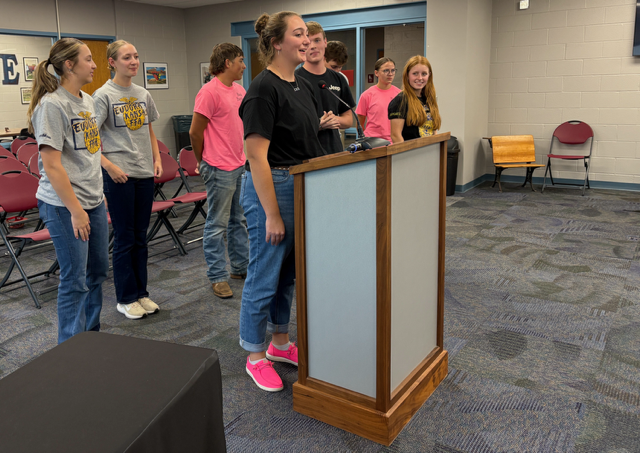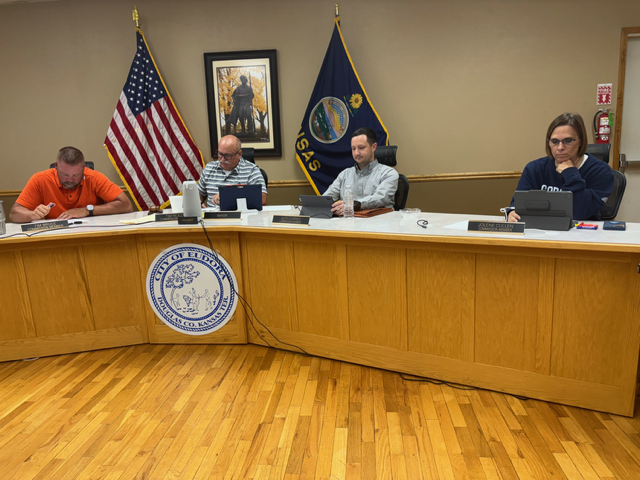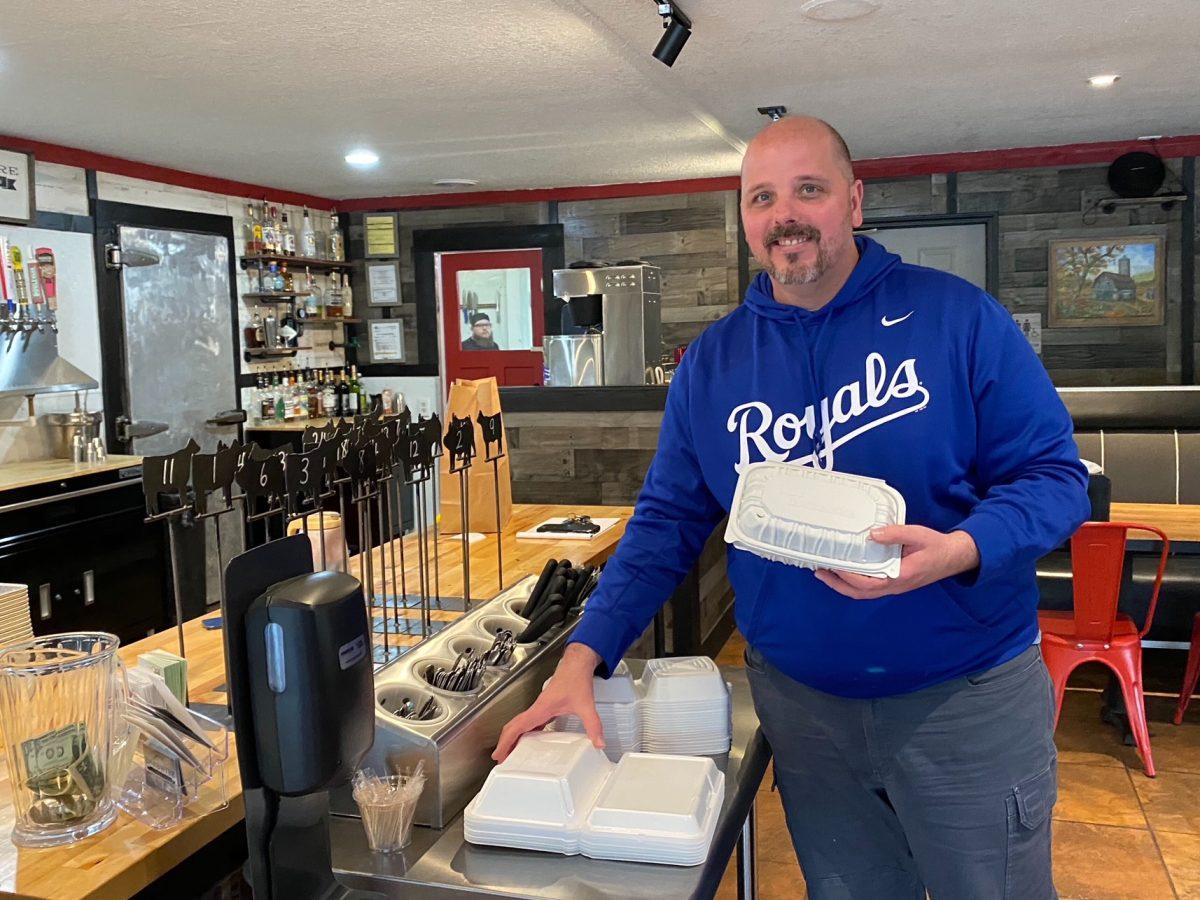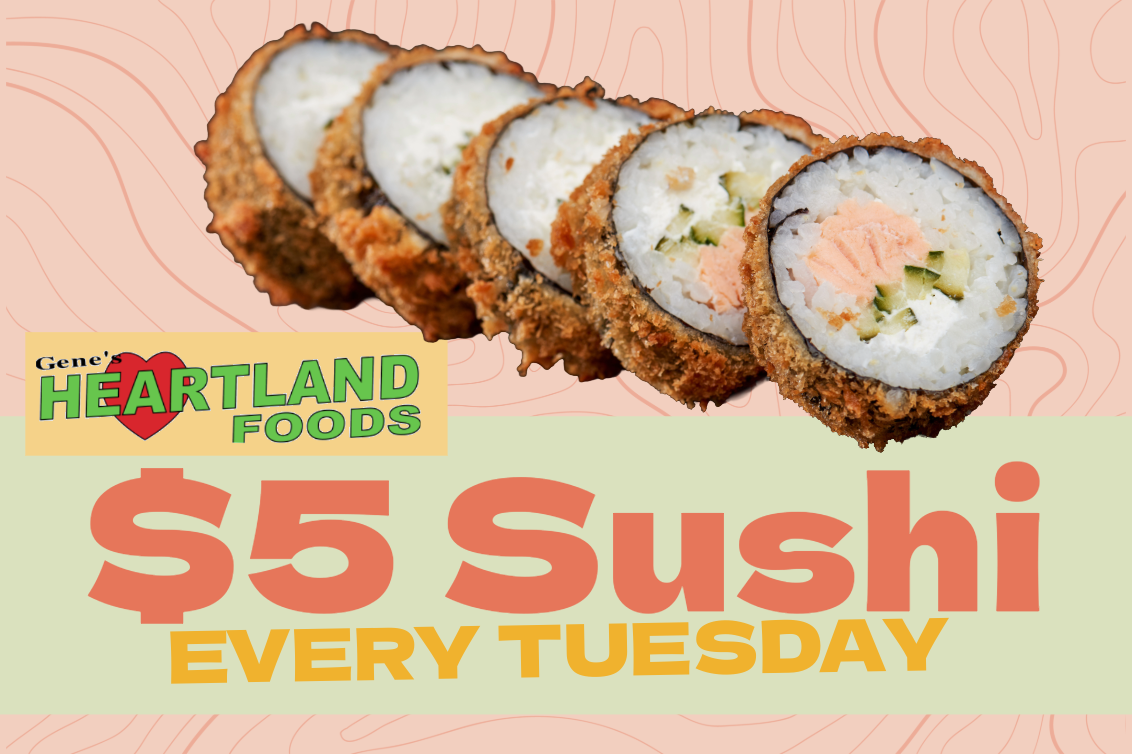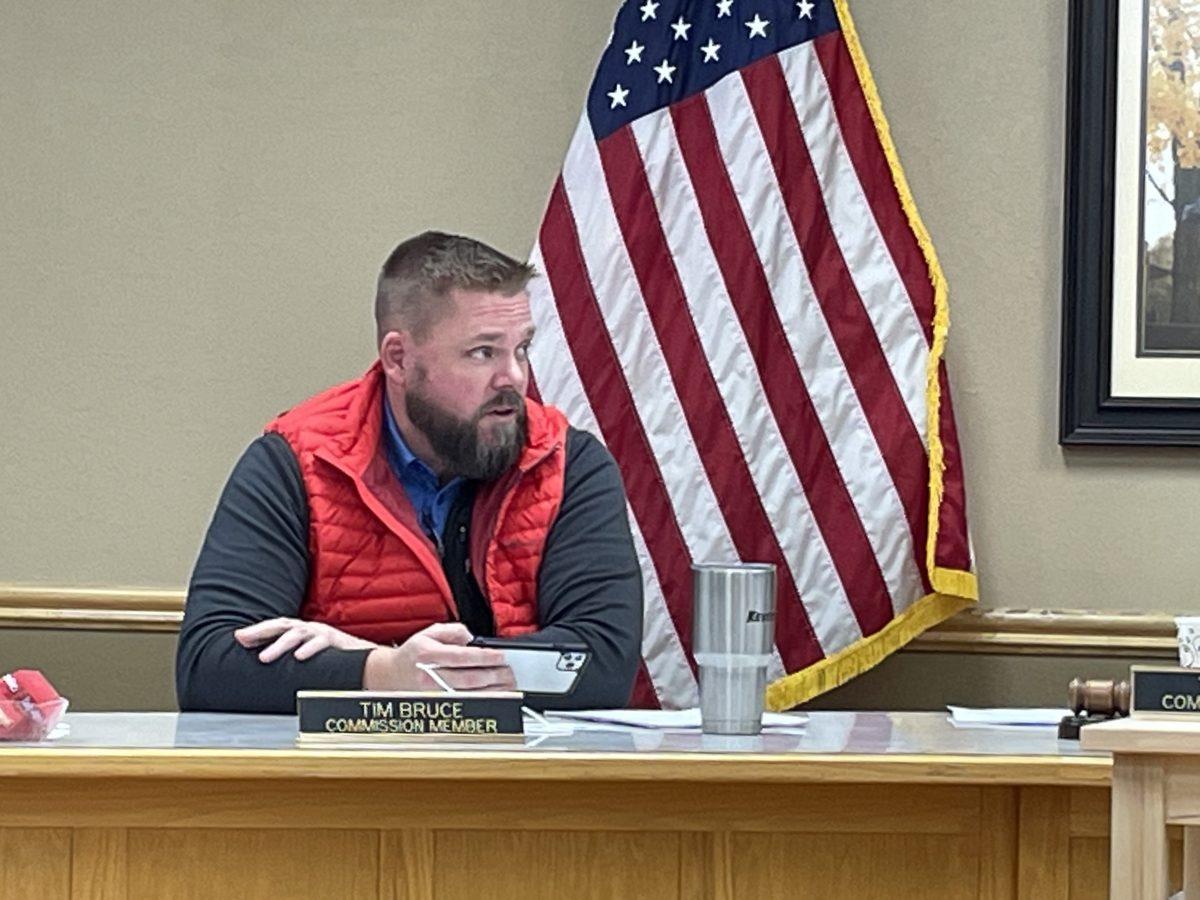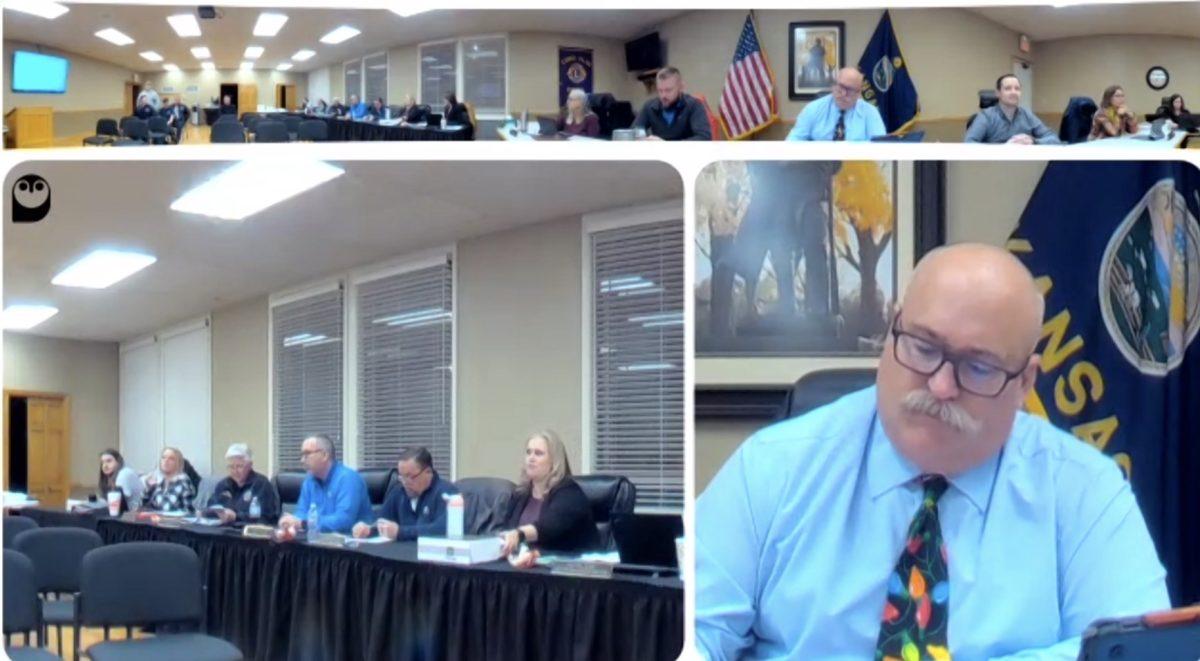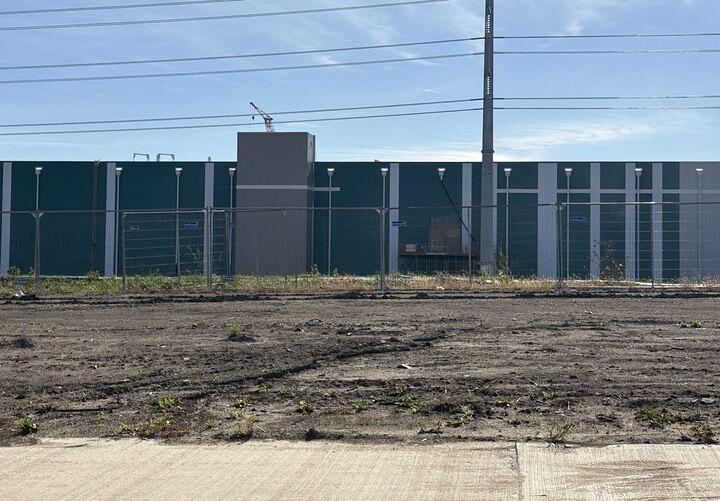Many local businesses have felt the impact of recent supply chain shortages and are having to make adjustments to meet the needs of consumers.
Prices of food supplies have been a notable issue for Barbwire Barbecue, owner Jason Musick said.
Prices of meat have gone up since Memorial Day weekend through the end of July, the busiest time for barbecue, Musick said.
“Pork has still been high, brisket is high and ribs, too. Chicken is crazy, especially chicken wings. You know, I think it’s like $1 apiece for a wing so it’s really expensive. And I don’t think some people understand that,” Musick said.
It is not just food supply, either. Barbwire Barbecue had to stop serving 32-ounce cups of beer due to not having enough cups in supply. Now the business only serves 16-ounce cups.
But with that came a transition that Musick has been hoping to implement for some time.
“Knowing that plastic is something that is going to be really hard to get, we now have 16-ounce reusable mugs. We’ve always wanted to go that way,” Musick said.
As a result of the shortages, the restaurant has had to make changes to the supplies and menu items. Changing to a digital menu is in the works and using eco-friendly to-go packaging has already been implemented.
Finding these new business decisions has been difficult but also exciting, provided they match with the brand, Musick said.
Eudora schools have experienced issues with delayed shipments for school lunch items, meaning the schools have to make quick substitutions to the weekly menus, said Robert Wood, director of food and nutrition services.
“We order two weeks out so we can substitute any substitute or change we need to make and update the menu. That causes some distress for parents when we print out the menu at the beginning of the month and then it changes one day,” Wood said.
If there are any food items that Wood can’t get, he finds a way to work around it by picking up the items himself or communicating substitutions with parents.
Accommodations and flexibility are how the schools have been subjugating the supply shortages and lack of truck drivers at the US Foods’warehouse, Wood said.
Twill Trade Boutique owner Elizabeth Knispel has had to make supply changes in her business as well.
On top of changing packaging from craft bags to a plastic alternative, the store has been experiencing shipping delays and backorders for some time.
“Usually, we would know the tracking of a specific vendor to the date and now it’s just whenever they ship it. So it is not a science anymore,” Knispel said.
Twill Trade gets shipments from 40-plus vendors, but the main issues are not coming from the vendors themselves but rather the transportation of the orders.
“Our business model is based on having shipments arrive weekly. We don’t reorder anything, we just bring in new shipments every week,” Knispel said. “So, when that is your business model and we are not able to have those new items flowing through the store, then it feels more stagnant and people don’t have that new excitement.”
While supplies like packaging are still of concern to Twill Trade, shipments of clothes and items remain the biggest hurdle for Knipsel because those items’ trends are a time-sensitive matter and crucial to the business, she said.
Gene’s Heartland Foods is also struggling to fill shelves with products from different brands, including Kraft and Frito-Lay, store manager Lance Handley said. In addition, there are only a few grocery suppliers with warehouses available to the store so changing suppliers is not an option, he said.
Gene’s Heartland Foods had similar struggles to fill shelves last year during the rise of the pandemic. While this year has proven less of a struggle to obtain products for the store, it is still experiencing supply issues.
“If you see a certain toilet paper come into the warehouse, we order three or four times what you would normally order so that way you hopefully still have some. You order heavier of the stuff you see when it comes in, that’s about the only thing you can do right now,” Handley said.
One business that has had to change suppliers is Gambino’s Pizza.
Cups and paper goods with the restaurant’s logo have had to change to ones more generic due to the shortage.
“It is basically whatever we can get our hands on. We aren’t changing pack (order) size. We are pretty much getting exactly, quantity-wise, what we have always gotten. I know some of the food products we are buying in larger quantities in order to sell it to us,” manager Aaron Boden said.
As a franchise restaurant, it’s out of this local Gambino’s control as to how much the store can order, Boden said.
Dairy Queen, being a franchise store, has had similar problems, including running low on to-go boxes. If the store runs out, workers must make do with what they have, manager Melissa Athey said.
“Things are starting to slowly come back. The warehouse has limited certain restaurants. We get a case at a time, other restaurants like in Lawrence get two cases. It just varies between stores,” Athey said.
While demand for supplies and foods is an issue for all stores, price has become another complication for smaller businesses.
Musick said, for his business, distributors raising prices for goods is a direct result of high demand. The demand could lead to more problems for small businesses down the road, he said.
“You have to evolve with your expectations when it comes to that. If they’re not paying attention to the food cost, small businesses like ours could definitely go under. That’s a challenge,” Musick said.
Reach reporter William Crow at [email protected].
To donate to support our community journalism, please go to this link: tinyurl.com/y4u7stxj













